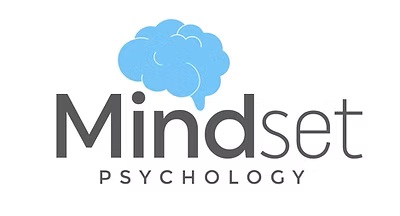Living with Obsessive-Compulsive Disorder (OCD) can feel like a constant battle between your thoughts and actions. The intrusive thoughts, the relentless anxiety, and the compulsive behaviors that follow can make everyday life feel overwhelming. You might find yourself stuck in a cycle of trying to control these thoughts, only to feel like they’re controlling you. It’s exhausting, and for many, finding a way out seems impossible.
This is where Acceptance and Commitment Therapy (ACT) comes in. ACT offers a new approach to treating OCD, one that doesn’t focus on eliminating thoughts or fighting against your emotions but instead encourages acceptance of them. It helps you learn to live with the discomfort while still moving toward the life you want. In this blog, we’ll explore how ACT works and how it can help you manage OCD in a more sustainable and meaningful way.
Understanding Acceptance and Commitment Therapy (ACT)
Acceptance and Commitment Therapy (ACT) is rooted in the idea that trying to fight or control negative thoughts often makes them worse. Instead of avoiding these thoughts or emotions, ACT encourages individuals to accept them as part of their experience without letting them dictate their behavior. This process, called psychological flexibility, is key to ACT’s approach.
At the core of ACT are several guiding principles:
Acceptance: Learning to embrace thoughts and emotions without judgment, even the uncomfortable ones.
Mindfulness: Staying present in the moment and observing thoughts and feelings without immediate reaction.
Values-Based Action: Identifying what truly matters in life and using those values to guide decisions and actions, rather than being controlled by OCD symptoms.
ACT differs from traditional cognitive therapies in that it doesn’t focus on changing or disputing thoughts. Instead, it teaches patients how to coexist with their thoughts and emotions while still making choices aligned with their core values. This shift in perspective allows individuals with OCD to break free from the exhausting cycle of avoidance and compulsive behaviors.
The Role of ACT in Treating OCD
For individuals with OCD, intrusive thoughts and compulsions can feel all-consuming. ACT takes a different approach to these challenges by teaching patients to acknowledge their obsessive thoughts without reacting to them with compulsive behavior. The goal is to help individuals recognize that these thoughts are just that—thoughts—and they don’t have to dictate actions.
In ACT, patients are encouraged to accept the discomfort that comes with their OCD symptoms, rather than trying to suppress or escape it. This acceptance doesn’t mean giving up but rather allowing oneself to experience difficult emotions without being ruled by them. By learning to live alongside their thoughts, patients reduce the power that these obsessions have over them.
Instead of focusing solely on eliminating symptoms, ACT shifts the goal to helping individuals lead meaningful lives despite the presence of OCD. By moving the focus away from control and toward living according to one’s values, ACT empowers patients to break free from the restrictive behaviors that OCD imposes on their lives.
How ACT Encourages Mindfulness in OCD Treatment?
Mindfulness is a fundamental component of ACT and plays a critical role in treating OCD. At its core, mindfulness involves being present in the moment and observing one’s thoughts and feelings without attaching judgment or reacting impulsively. This practice can be especially helpful for individuals with OCD, as it allows them to observe their intrusive thoughts without feeling the need to act on them.
By practicing mindfulness, people with OCD learn to observe their thoughts from a distance rather than being overwhelmed by them. This shift helps reduce the intensity of obsessive thoughts and the urge to engage in compulsive behaviors. Over time, mindfulness teaches patients to stay grounded in the present moment, which can lower anxiety levels and create emotional distance from their OCD symptoms.
ACT helps patients cultivate mindfulness as a tool for managing OCD. With regular practice, this skill becomes a natural way to respond to distressing thoughts, allowing individuals to focus on what truly matters rather than being consumed by their obsessions.
Take the Next Step Toward Healing
You don’t have to navigate life’s challenges alone. Our Long Island therapists provide a safe, supportive space for you to heal and grow.
Psychological Flexibility: A Key to Managing OCD
One of the most powerful concepts in ACT is psychological flexibility, which refers to the ability to adapt to difficult thoughts and emotions while still taking meaningful action. For individuals with OCD, this means learning to accept intrusive thoughts without allowing them to interfere with daily life or lead to compulsive behaviors.
Psychological flexibility helps patients reduce the urge to avoid certain situations or perform compulsions. Instead, they can focus on what’s important to them—whether that’s relationships, career goals, or personal growth—and make decisions based on their values rather than fear or anxiety.
By fostering psychological flexibility, ACT gives individuals with OCD the tools to cope with their symptoms in a healthier, more sustainable way. This approach encourages people to engage in value-driven actions, helping them create a more fulfilling and balanced life despite the challenges of OCD.
Living in Line with Personal Values
ACT places a strong emphasis on living a life aligned with personal values, even in the presence of OCD symptoms. Rather than allowing obsessive thoughts to control their actions, patients are encouraged to identify their core values and use those values as a guide for decision-making.
For someone with OCD, this might mean shifting their focus from avoiding anxiety-provoking situations to engaging in activities and relationships that bring meaning and fulfillment. By redirecting attention to what truly matters, individuals with OCD can begin to break free from the cycle of compulsions and reclaim their lives.
ACT helps patients recognize that while OCD may always be a part of their experience, it doesn’t have to dictate how they live. By focusing on values-based actions, individuals can prioritize what’s meaningful to them, ultimately leading to a more rewarding and purpose-driven life.
Long-Term Benefits of ACT for OCD
One of the greatest strengths of ACT is its focus on the long-term management of OCD. While some therapies may offer temporary relief, ACT provides tools for sustainable coping with symptoms. By helping individuals accept their thoughts and emotions, ACT reduces reliance on compulsive behaviors and fosters emotional resilience over time.
As patients continue to practice the skills learned in ACT, they often experience a decrease in anxiety and obsessive thoughts. More importantly, they gain the ability to live meaningful lives, even with the presence of OCD. Over time, the need for compulsions diminishes, and patients are better equipped to handle life’s challenges without falling back into old patterns. With its emphasis on mindfulness, values, and psychological flexibility, ACT empowers individuals to take control of their lives and create a future based on what they care about most.
Mindset Psychology: Expert Care for ACT in OCD Treatment
At Mindset Psychology, we understand how challenging OCD can be, and we’re here to help you navigate your way toward healing. Our team of experienced therapists is highly trained in Acceptance and Commitment Therapy (ACT), ensuring that you receive personalized, compassionate care tailored to your specific needs. We don’t just focus on managing symptoms; we help you build a life centered on your values, even with the presence of OCD.
Whether you prefer in-person sessions at our NYC location or virtual therapy from the comfort of your home, we’re committed to making treatment convenient and accessible. Our therapists work closely with you to develop a treatment plan that’s right for you, empowering you to take control of your OCD and live a fulfilling life.
Conclusion
Acceptance and Commitment Therapy (ACT) offers a powerful approach to managing OCD, focusing on acceptance, mindfulness, and living in alignment with personal values. By reducing the need for compulsions and fostering psychological flexibility, ACT provides individuals with the tools they need for long-term emotional resilience and a more meaningful life.
At Mindset Psychology, we specialize in ACT for treating OCD, offering compassionate, personalized care to help you overcome the challenges of OCD. Contact us today to learn how ACT can help you lead a balanced, fulfilling life despite the presence of OCD symptoms. Let us guide you on your journey to healing.

